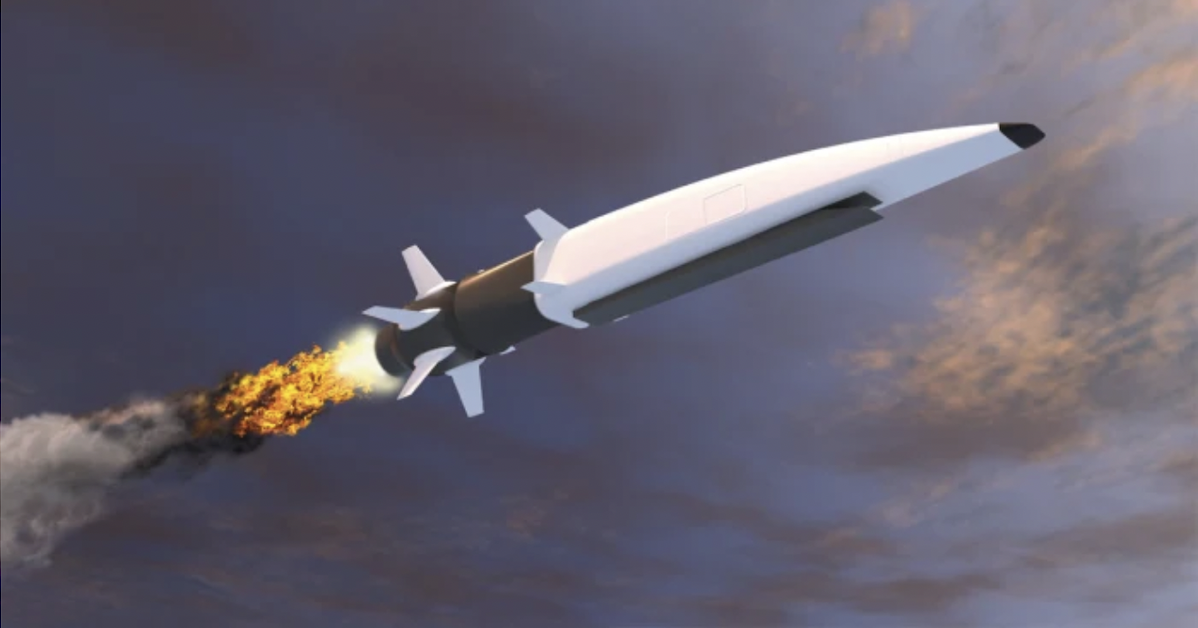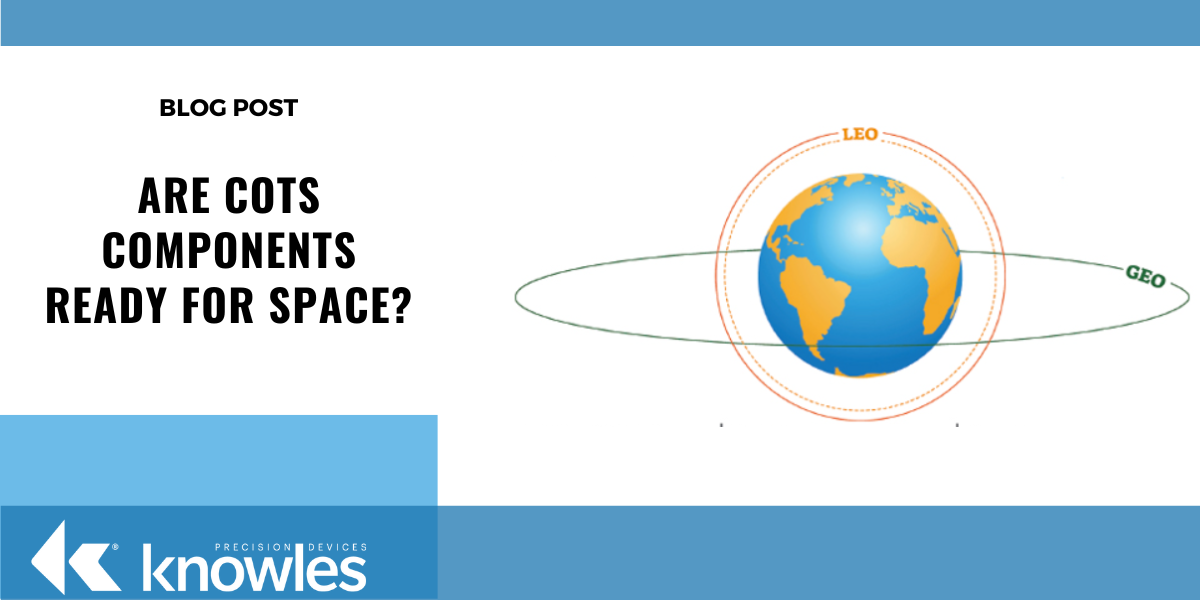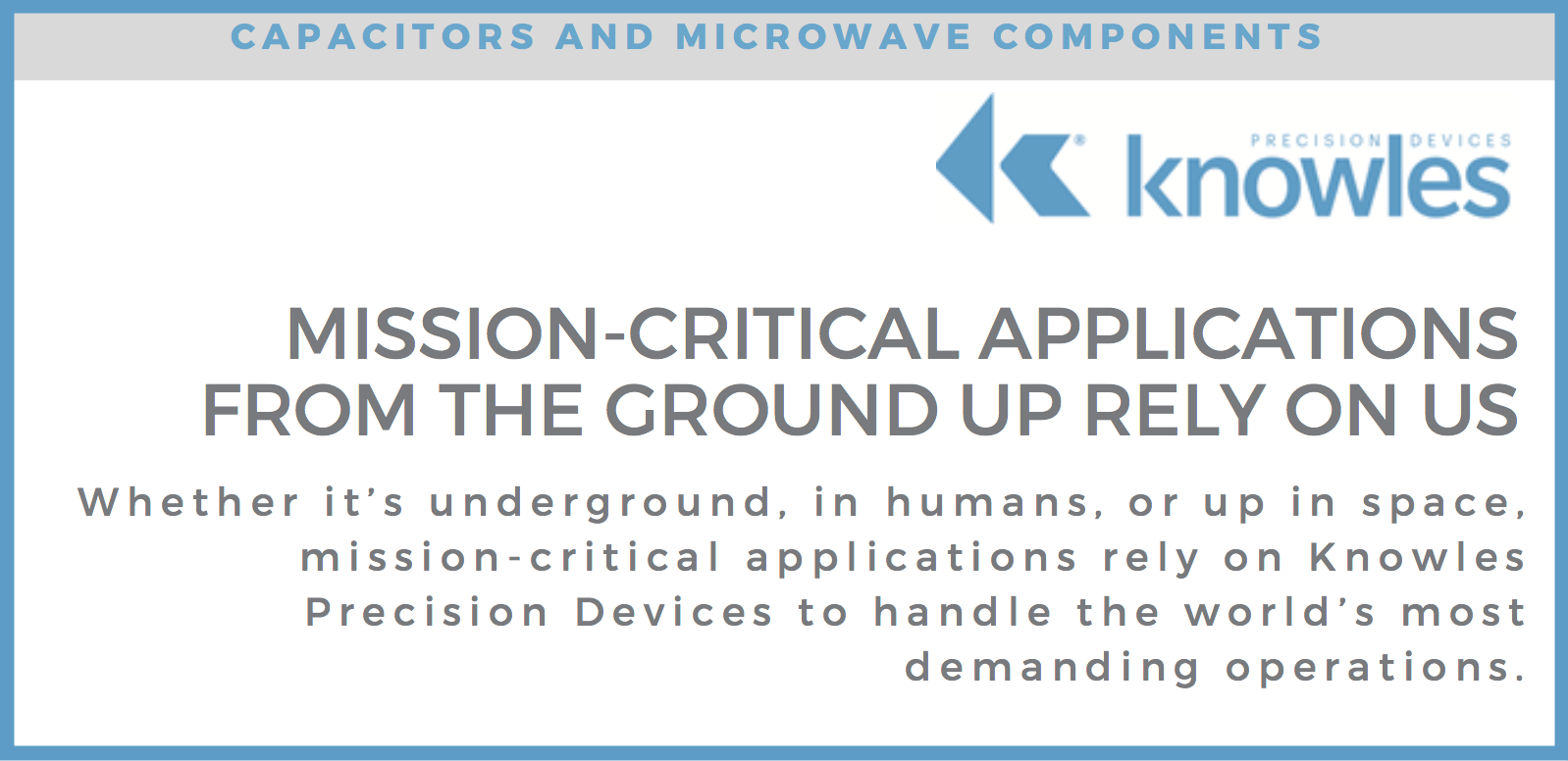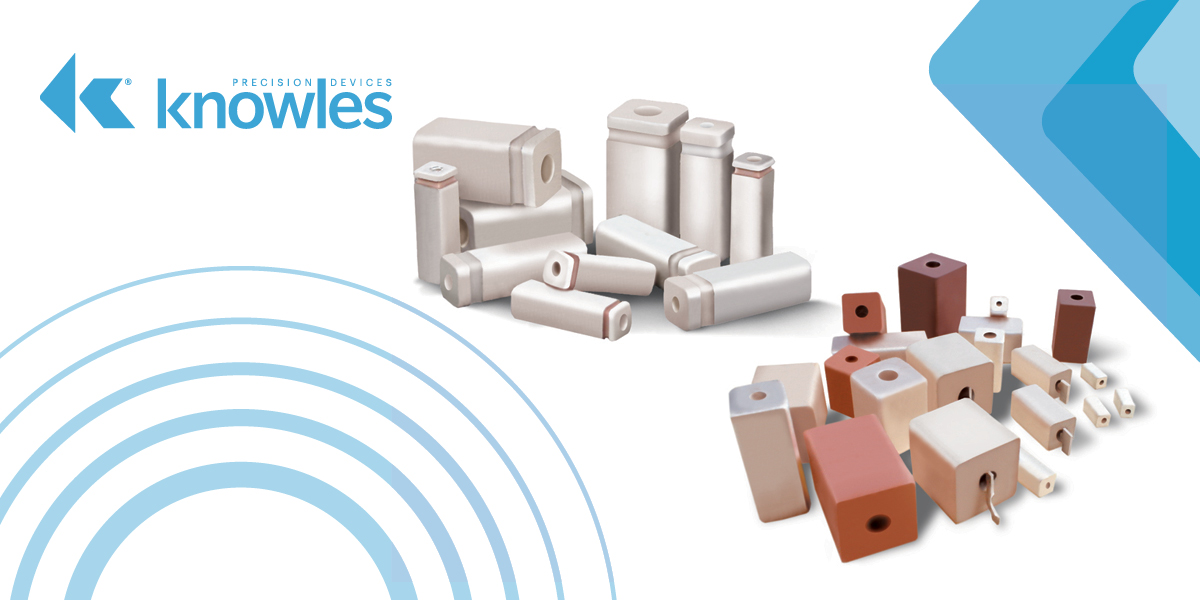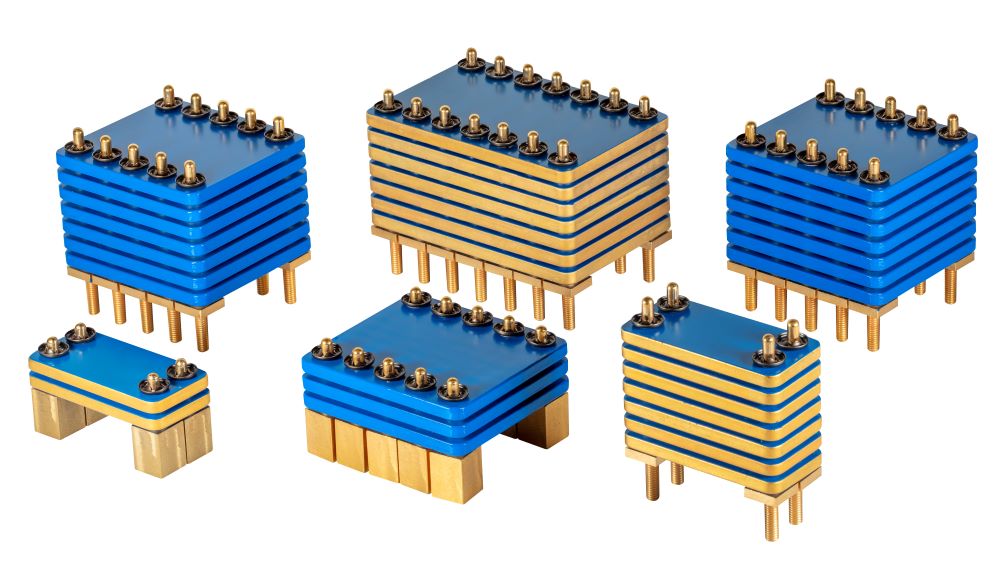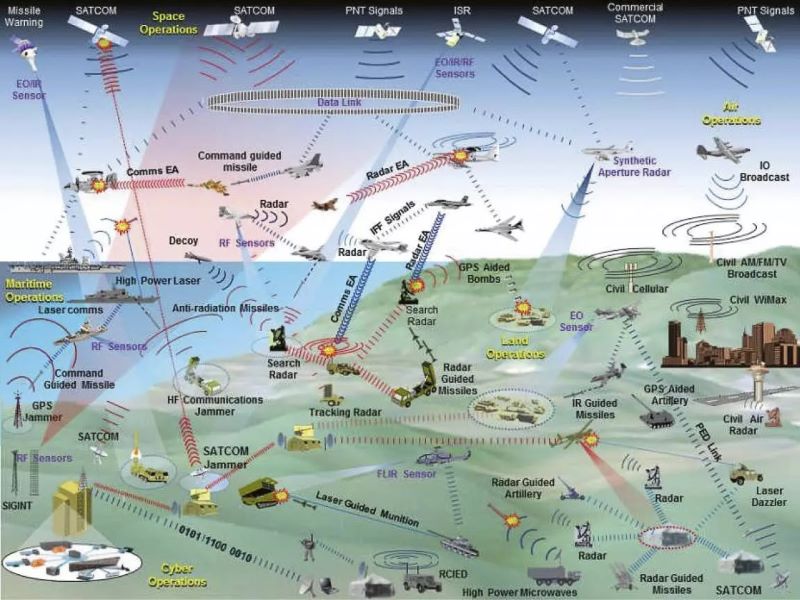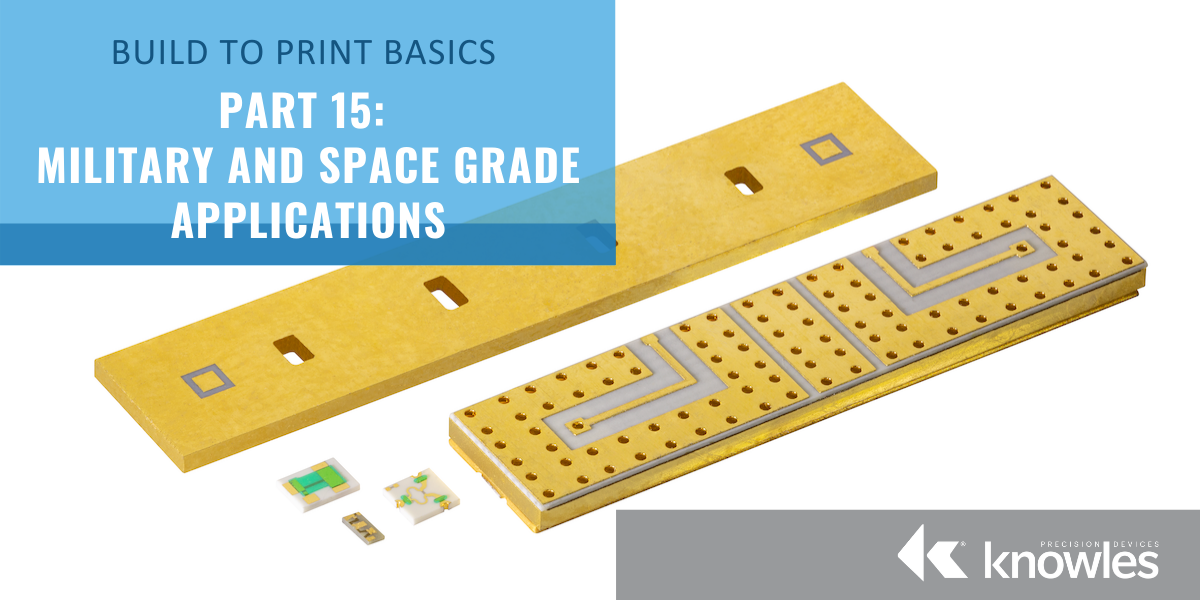As countries around the world continue to work on more sophisticated ways to conduct military missions – including weaponry that can reach intended targets quicker with even greater accuracy while remaining virtually undetectable – aerospace and defense companies are pushing the missile speed boundaries. Military aircraft and weaponry today are capable of traveling at supersonic speeds and are even entering hypersonic speed territory.
High Reliability for High Stakes: Electronics Components Powering Hypersonic Missiles
Topics: Military and Aerospace, High Reliability
After decades of viewing MIL-SPECs as the gold standard for qualifying and screening parts for viability in space, NASA has recently changed course, and is adopting commercial-off-the-shelf (COTS) parts as an option for a variety of space applications. Burgeoning changes in industry trends, a drive to remain competitive, and the desire to guide budget-constrained missions pushed the organization to commission a NASA Engineering and Safety Center (NESC) study to evaluate the reliability of COTS parts. Upon completion of the study, NASA aims to create a consistent set of requirements at the agency level to minimize risk and impact of part selection/usage on the performance of NASA spaceflight technology.
Topics: Military and Aerospace
Practical Innovation at Knowles Precision Devices
Innovating essential high technology systems with demanding specifications is always challenging; making any sort of difference requires extensive resources and deep subject matter knowledge.
But that’s what keeps it interesting.
Topics: 5G, Capacitor, News and Events, RF and Microwave, Automotive, Military and Aerospace, Medical
Understanding the Nuances of Space-Level Filter Qualification and Screening
When launching expensive mission-critical equipment and people into space, there is absolutely no room for failure of any component. Therefore, if you are an RF system designer working on an aerospace application, you must be sure you are selecting high-quality, high-reliability electronic components for all your designs. But do you have a process in place for this type of component selection? At Knowles Precision Devices, we know it can be a challenging to navigate component selection for aerospace applications as there are many combinations of standards and tests that can be performed to space-qualify parts.
Topics: Military and Aerospace, High Reliability, Filtering
Capacitors in Space: Specifications for High-Reliability
Space missions present a unique set of environmental challenges that demand high reliability down to the smallest electronic components. Mission failures could cost human lives. From in-flight systems to power supplies, every single system contributes to the success of a space project, so they must maintain high quality and safety standards for long durations.
Topics: Capacitor, Military and Aerospace, High Reliability
Striking a Balance for Spectrum Needs: 5G Communications vs. Aircraft Altimeter Operations
At this point, you’ve likely seen a slew of mainstream news articles about 5G causing safety concerns around air travel. In fact, ahead of the rollout of new 5G services from major US telecom companies including Verizon and AT&T on Jan. 19, 2022, many international airlines canceled or delayed flights to major US airports where they believed 5G signals could possibly interfere with the radar signals required to properly operate landing equipment on their planes.
Topics: RF and Microwave, Military and Aerospace, Filtering
Expanding Our Filter Technology Offerings to Serve Low-Frequency Applications
This year, Knowles Precision Devices acquired Integrated Microwave Corporation (IMC), a leader in the design and manufacture of custom precision RF microwave filters and multiplexers for the aerospace, defense, and communications industries. This acquisition was particularly exciting as our two companies share deep expertise in engineering high-performance ceramics for RF and microwave applications. And, like Knowles Precision Devices, IMC also has a long heritage of supplying highly reliable components for mission critical space devices that includes applications such as the MARS Orbiters, MARS Landers, and MARS Rovers.
Topics: News and Events, RF and Microwave, Military and Aerospace
Achieving high capacitance means going big. But how do you do that while still maximizing board space? At Knowles Precision Devices, we’ve developed a new method for building customizable large capacitor assemblies that capitalize on the vertical space above the circuit board. While stacked capacitor assemblies have been around for many years, these parts do not have very good bump and vibration withstand due to the thin leads used in their construction. These new assemblies from Knowles Precision Devices offer a ruggedized construction capable of withstanding high levels of shock and vibration. This offers a unique combination of capability, durability, high capacitance, and very high voltage in a smaller area, making these capacitors ideal for automotive, military, and aerospace applications.
Topics: Capacitor, Automotive, Military and Aerospace, Electric Vehicles, High Reliability
Making a Reduced Form Factor, High-Performance Switch Filter Bank a Reality
Many critical military operations around the world are increasingly relying on a variety of electronic warfare devices for a range of threat suppression, detection, and neutralization activities. This means that numerous devices operating across the RF spectrum including low-frequency devices in the VHF band and mmWave devices in the Ka band are necessary. As shown in Figure 1, when many electronic warfare devices are in use, a large number of signals are being sent and received and crossing paths. Therefore, it’s easy for any one of these devices to experience issues with interference if proper filtering techniques are not in place.
Topics: RF and Microwave, Military and Aerospace, Filtering
Build-to-Print Basics Part 15: Military and Space Grade Applications
To provide a better understanding of build-to-print in general and the breadth of our offerings, as well as how our thin-film technology can benefit your applications, we’ve put together a Build-to-Print Basics series. In this final post of our Build-to-Print Basics series, we discuss the quality standards we follow to ensure our components are qualified for military and space grade applications as well as the additional testing or spec design we can perform as needed by our customers.
Topics: Military and Aerospace, Build to Print

